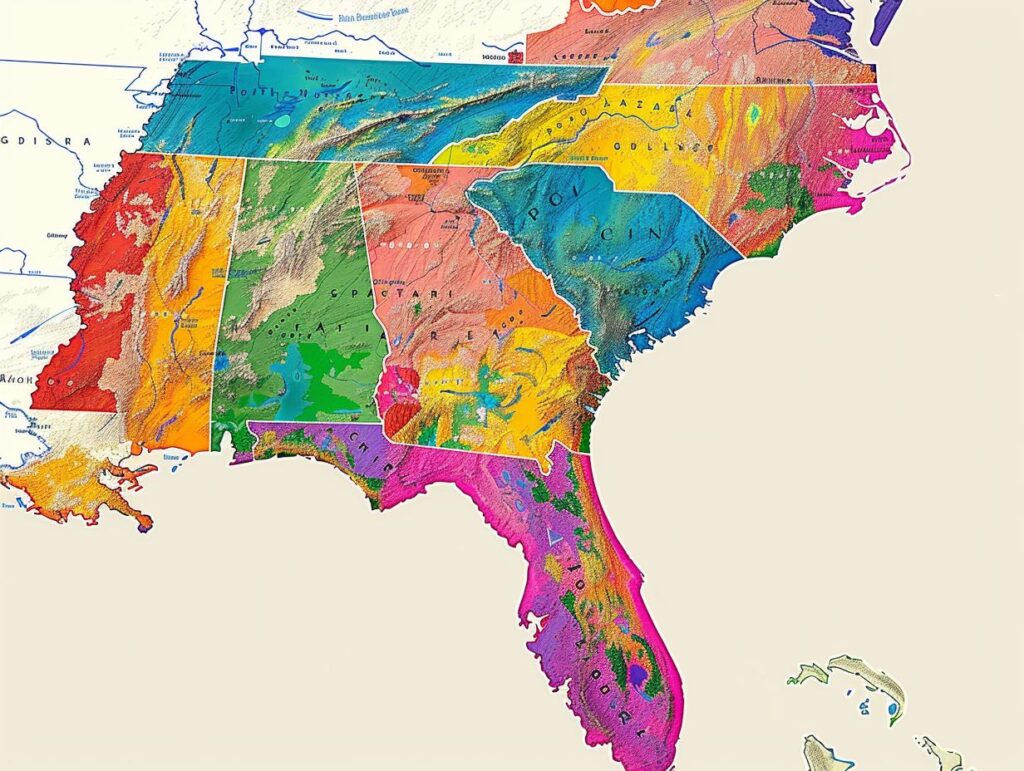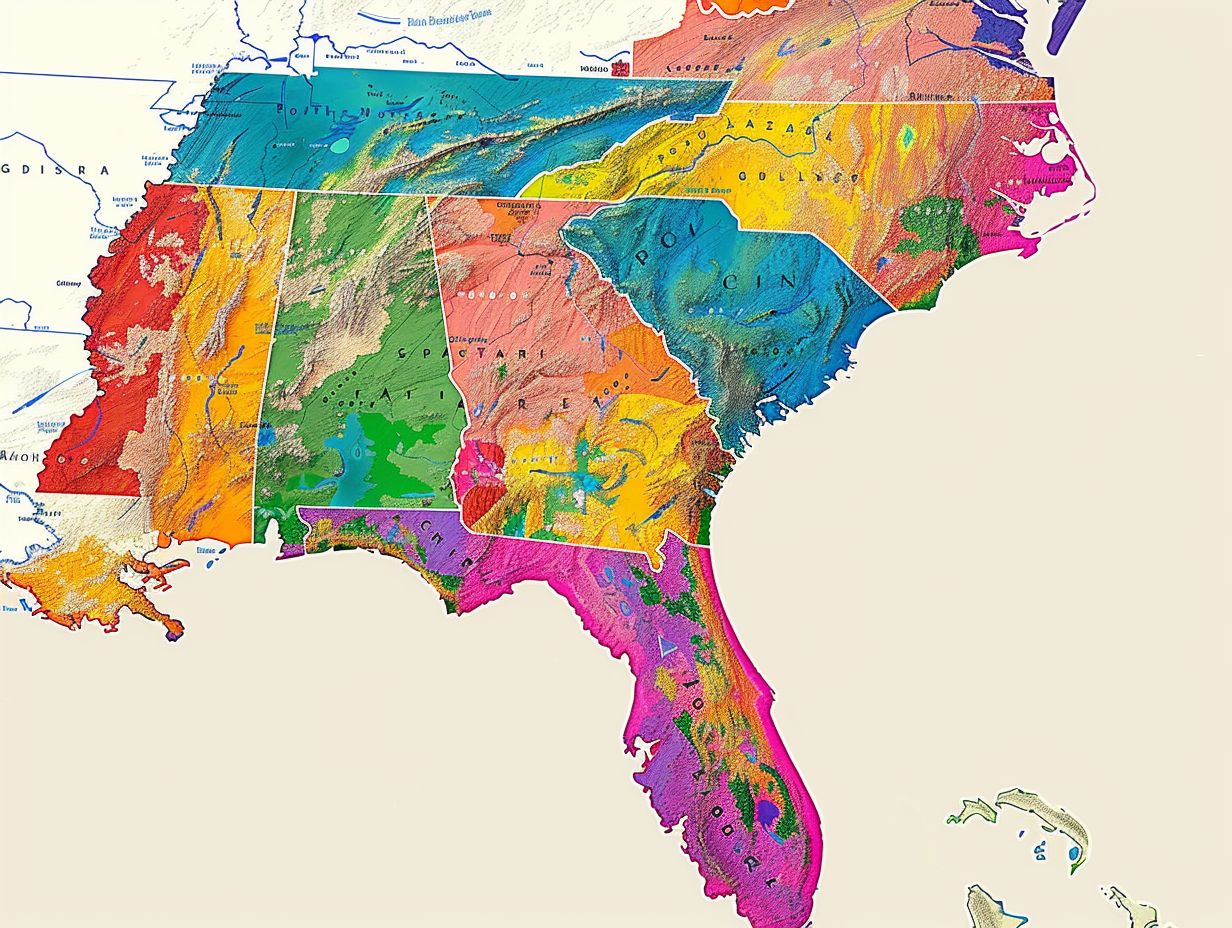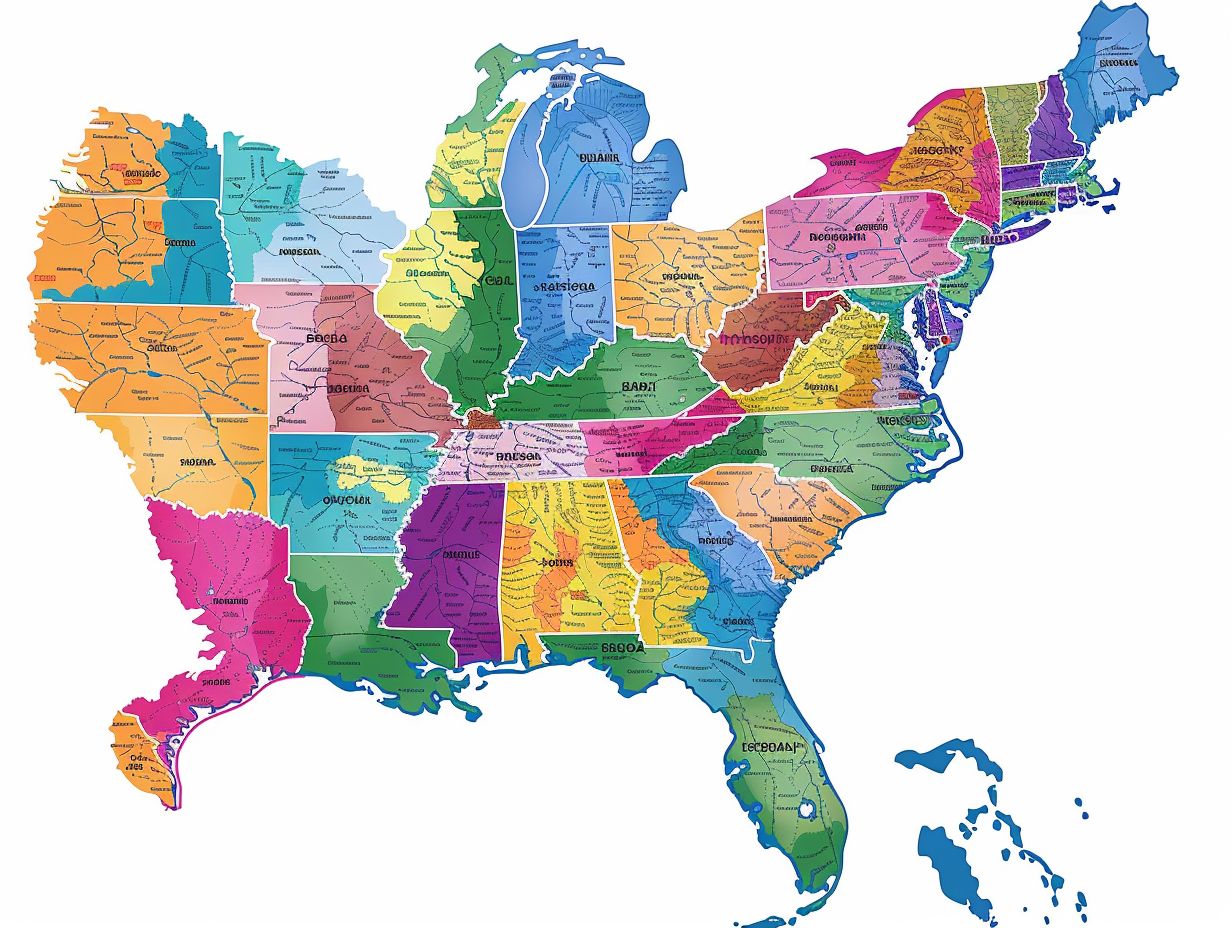Ever wondered how certain services like water and sewer, fire and rescue, and community development are provided in your neighborhood? Special districts in Florida play a crucial role in delivering essential services to local communities.
We will explore the definition, purpose, and types of special districts in Florida, as well as how they are created and funded. We will also discuss the benefits they offer, such as local control and efficiency, along with the challenges they face, like lack of accountability and transparency.
Learn more about the role of special districts in the Florida government.
Key Takeaways:
- Special districts in Florida are local government entities created to provide specific services that may not be covered by county or municipal governments.
- The creation of special districts in Florida involves both the state legislature and local governments, giving them a unique level of control and flexibility.
- Special districts in Florida typically provide essential services such as water and sewer, fire and rescue, and community development, funded through property taxes, user fees, and bonds.
What Are Special Districts?
Special districts are a form of local government in Florida established to deliver particular services to a specified area that other local governments may not be able to manage effectively.
Definition and Purpose
The primary function of special districts is to oversee specific public infrastructure and services, managing assets and liabilities within their designated jurisdiction. These districts are typically established to address specific needs within a community, such as providing water and sewer services, fire protection, parks and recreation facilities, or waste management.
For instance, a water district may be tasked with ensuring the safe distribution of clean water to residents, while a fire protection district concentrates on firefighting services and emergency response. By focusing on these specific areas, special districts can effectively allocate resources and customize their services to fulfill the unique needs of their constituents.
What Services Do Special Districts Provide?
Special districts offer a variety of services, such as infrastructure management, community development, and educational support, customized to meet the unique requirements of their jurisdictions.
Water and Sewer
Special districts, such as the Eastpoint Water and Sewer District, have the responsibility of providing essential water and sewer services, ensuring the proper management of these crucial infrastructure elements.
These districts play a critical role in safeguarding public health by delivering clean and safe drinking water, as well as managing the treatment and disposal of wastewater. By maintaining and upgrading water and sewer systems, special districts help promote environmental sustainability and protect water resources for future generations.
Through diligent monitoring and infrastructure improvements, these districts ensure that communities have reliable access to essential services, contributing to the overall quality of life and economic development within their jurisdictions.
Fire and Rescue
Many special districts also offer fire and rescue services, which play a vital role in maintaining public safety and ensuring effective emergency response within their areas of authority.
These services typically include a wide array of duties, such as firefighting, emergency medical response, hazardous material containment, and technical rescue operations.
Special district firefighters and rescue personnel collaborate closely with local government emergency services to coordinate response efforts during incidents. This teamwork helps in optimizing resources and facilitating a prompt and efficient emergency response.
Special districts frequently have specialized training and equipment designed to meet the unique needs of their communities, thereby enhancing their capacity to manage various emergency situations with skill and proficiency.
Community Development
Community development is a key service offered by special districts, illustrated by The Villages as an example of how these entities handle large-scale residential and commercial projects.
Special districts play an important role in shaping the physical and social environment of neighborhoods through meticulous planning and the establishment of necessary infrastructure. They collaborate closely with local governments to ensure that new communities are designed to meet residents’ needs while prioritizing environmental sustainability.
By supervising the construction of roads, utilities, parks, and other public amenities, special districts enhance the overall quality and functionality of expanding areas. The Villages, with its well-planned layout and extensive recreational offerings, demonstrates how special districts can enhance community living experiences.
Parks and Recreation
Special districts often oversee parks and recreational facilities, improving residents’ quality of life by providing well-maintained public spaces and recreational programs. These well-kept parks and recreational facilities play a significant role in community well-being, offering spaces for physical activities, connecting with nature, and building social connections.
Thoughtful planning and development of these areas ensure that community members have access to green spaces that encourage relaxation, exercise, and overall health. By coordinating various recreational programs and events, special districts nurture a sense of community spirit and offer opportunities for individuals of all ages to engage in diverse activities that suit their interests and requirements.
How Are Special Districts Funded?
Special districts are funded through a combination of property taxes, user fees, bonds, and assessments, enabling them to maintain and enhance the services they offer.
Property Taxes
Property taxes serve as a key funding source for numerous special districts, providing vital tax revenue to sustain their functions and services.
These special districts determine property tax assessments based on the value of real estate located within their jurisdiction. Tax payments are determined as a portion of the property’s assessed value, typically evaluated by assessors from the local government.
Property owners receive tax statements detailing the owed amount, which may differ based on the particular district and current tax rates. The funds collected from these property taxes are used by special districts to finance a range of activities, including infrastructure maintenance, public service provision, and improvement of community facilities.
User Fees
User fees serve as a notable funding source for special districts, being levied for particular services offered to residents and businesses within the district. These fees are gathered to offset the expenses linked to services like water and sewer utilities, waste collection, parks and recreational facilities, and fire protection.
By imposing user fees for these critical services, special districts can guarantee that the financial responsibility is shared among those who receive direct benefits. This method of cost recovery aids special districts in upholding financial stability by reducing dependence on general tax revenues and enhancing responsibility in resource distribution.
Bonds and Assessments
Special districts commonly utilize bonds and assessments to secure financing for significant projects, potentially leading to extended debt commitments.
Bonds function as a form of borrowing, where investors provide funds to the special district in exchange for regular interest payments and repayment of the principal sum at a designated future date.
The issuance of bonds offers the benefit of accessing a greater capital reserve at the outset, allowing the district to pursue substantial infrastructure enhancements without solely depending on existing revenues. However, bonds also carry risks, including the possibility of default should the district be unable to fulfill its debt responsibilities.
What Are the Benefits of Special Districts?
Special districts provide various advantages, such as:
- Local control and flexibility: allowing decisions to be made at the local level based on the specific needs of the community.
- Efficiency and cost savings: by focusing on specific services, special districts can often operate more efficiently and cost-effectively compared to larger government entities.
- Delivery of specialized services customized to the unique requirements of their communities: tailoring services to meet the distinct needs of the community, ensuring effective service delivery.
Local Control and Flexibility
One of the primary advantages of special districts is their capacity to provide local control and flexibility, allowing for customized service delivery that caters to the distinct requirements of their communities.
This local control and flexibility give the power to special districts to adapt their services promptly based on the specific needs of their community members. For instance, an educational special district might introduce personalized learning initiatives following input from local parents and teachers, ensuring that students receive the necessary support and resources.
Similarly, a healthcare special district could modify its services to target prevalent health issues within its jurisdiction, enhancing health outcomes through focused interventions. These adjustments demonstrate how special districts can efficiently and proficiently address the diverse demands of their communities.
Efficiency and Cost Savings
Special districts are frequently more efficient and cost-effective than other types of local governments, primarily due to their specialized focus and streamlined operations. These specialized entities can adapt their services to address the distinct requirements of their communities, facilitating more targeted and effective resource allocation.
By concentrating on a specific function such as water management, fire protection, or waste disposal, special districts can function with a high degree of expertise and efficiency. For instance, the Orange County Water District in California has received widespread acclaim for effectively managing groundwater resources, resulting in substantial cost reductions and enhanced service quality for residents.
Targeted Services
By focusing on specific community needs, special districts can provide highly targeted services that address the unique challenges and priorities of their jurisdictions.
These specialized entities offer a range of services, such as water and sewage management, fire protection, public transportation, and parks and recreation facilities.
By honing in on these particular areas, special districts can allocate their resources efficiently to meet the distinct requirements of the communities they serve. This approach allows for a more tailored and responsive delivery of services, enhancing the overall quality of life for residents.
Through local governance and funding mechanisms, special districts ensure that essential services are provided in a manner that best serves the interests of their constituents.
What Are the Challenges of Special Districts?
Special districts have advantages as well as challenges. Challenges include:
- lack of accountability,
- overlap and fragmentation of services, and
- transparency and public awareness issues.
Lack of Accountability
A significant challenge for special districts is the lack of accountability, which can lead to inefficiencies and governance issues. This lack of accountability in special districts can often be attributed to the complex and decentralized nature of their operations.
With multiple stakeholders, decision-making processes can become convoluted, making it difficult to pinpoint responsibility for outcomes. Another contributing factor is the limited oversight mechanisms in place, allowing for potential misuse of funds and resources without adequate checks and balances.
To address these issues, implementing stricter reporting requirements, enhancing transparency in financial transactions, and establishing independent audit committees can significantly improve accountability and governance within special districts.
Overlap and Fragmentation
The overlap and fragmentation of services provided by special districts and other local government entities can lead to confusion and inefficiencies. This situation arises when multiple entities are responsible for similar services within the same geographic area, resulting in redundancy and gaps in coverage.
When services are fragmented, individuals may struggle to navigate the system, experiencing delays or even missing out on necessary support. To address this issue, enhancing coordination and integration among these entities is crucial.
By fostering collaboration, sharing resources, and streamlining communication channels, service delivery can become more seamless and effective for the community members in need.
Transparency and Public Awareness
Transparency and public awareness are important considerations for special districts, with organizations like the Florida Association of Special Districts (FASD) striving to enhance these aspects through audits and public education.
When special districts prioritize transparency, it cultivates trust and credibility among stakeholders, such as taxpayers and residents. By offering clear and easily accessible information about their operations, budgets, and decisions, special districts can guarantee that the public is well-informed and involved in the governance process.
The initiatives undertaken by entities like FASD to improve transparency and public awareness not only foster accountability but also support better decision-making and resource allocation. Audits play a crucial role in this process by confirming the accuracy and legality of financial transactions, ensuring that public funds are used efficiently and effectively.
Frequently Asked Questions
What are special districts in Florida government?
Special districts in Florida government are independent, special-purpose governmental units that provide specific services within a defined geographic area. These districts are created by the Florida legislature to address the unique needs of a community, such as providing water and sewer services, managing fire protection, or maintaining roads and bridges.
What is the role of special districts in Florida government?
The role of special districts in Florida government is to provide essential services to residents within their designated boundaries. They have the authority to levy taxes and fees to fund these services and are governed by an elected or appointed board of directors. Special districts also have the responsibility of managing their own budgets and operations.
How are special districts in Florida government funded?
Special districts in Florida government are funded through various sources, including property taxes, user fees, and grants. The specific funding sources vary depending on the type of services provided by the district. For example, a water and sewer district may primarily rely on user fees, while a fire protection district may primarily rely on property taxes.
What types of services do special districts in Florida government provide?
Special districts in Florida government provide a wide range of services, including water and sewer, fire protection, parks and recreation, mosquito control, libraries, and healthcare. The services offered by a specific district depend on the needs of the community and the purpose for which the district was created.
How are special districts in Florida government governed?
Special districts in Florida government are governed by an elected or appointed board of directors, also known as the district’s governing body. The number of board members can vary depending on the size and type of district. These board members are responsible for making decisions and setting policies for the district.
Can special districts in Florida government be dissolved or merged?
Yes, special districts in Florida government can be dissolved or merged through a legislative process. This typically requires a bill to be passed by the Florida legislature and signed by the governor. Dissolving or merging a special district can be a complex and lengthy process, as it involves determining the impact on residents and services provided by the district.

























Rate this article:
No Comments yet!